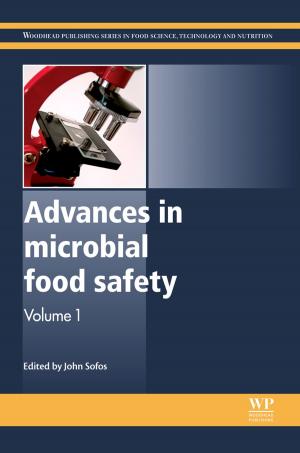Managing Agricultural Greenhouse Gases
Coordinated Agricultural Research through GRACEnet to Address our Changing Climate
Nonfiction, Science & Nature, Nature, Plant Life, Trees, Science, Biological Sciences, Biology, Technology| Author: | ISBN: | 9780123868985 | |
| Publisher: | Elsevier Science | Publication: | October 16, 2012 |
| Imprint: | Academic Press | Language: | English |
| Author: | |
| ISBN: | 9780123868985 |
| Publisher: | Elsevier Science |
| Publication: | October 16, 2012 |
| Imprint: | Academic Press |
| Language: | English |
Global climate change is a natural process that currently appears to be strongly influenced by human activities, which increase atmospheric concentrations of greenhouse gases (GHG). Agriculture contributes about 20% of the world’s global radiation forcing from carbon dioxide, methane and nitrous oxide, and produces 50% of the methane and 70% of the nitrous oxide of the human-induced emission. Managing Agricultural Greenhouse Gases synthesizes the wealth of information generated from the GRACEnet (Greenhouse gas Reduction through Agricultural Carbon Enhancement network) effort with contributors from a variety of backgrounds, and reports findings with important international applications.
- Frames responses to challenges associated with climate change within the geographical domain of the U.S., while providing a useful model for researchers in the many parts of the world that possess similar ecoregions
- Covers not only soil C dynamics but also nitrous oxide and methane flux, filling a void in the existing literature
- Educates scientists and technical service providers conducting greenhouse gas research, industry, and regulators in their agricultural research by addressing the issues of GHG emissions and ways to reduce these emissions
- Synthesizes the data from top experts in the world into clear recommendations and expectations for improvements in the agricultural management of global warming potential as an aggregate of GHG emissions
Global climate change is a natural process that currently appears to be strongly influenced by human activities, which increase atmospheric concentrations of greenhouse gases (GHG). Agriculture contributes about 20% of the world’s global radiation forcing from carbon dioxide, methane and nitrous oxide, and produces 50% of the methane and 70% of the nitrous oxide of the human-induced emission. Managing Agricultural Greenhouse Gases synthesizes the wealth of information generated from the GRACEnet (Greenhouse gas Reduction through Agricultural Carbon Enhancement network) effort with contributors from a variety of backgrounds, and reports findings with important international applications.
- Frames responses to challenges associated with climate change within the geographical domain of the U.S., while providing a useful model for researchers in the many parts of the world that possess similar ecoregions
- Covers not only soil C dynamics but also nitrous oxide and methane flux, filling a void in the existing literature
- Educates scientists and technical service providers conducting greenhouse gas research, industry, and regulators in their agricultural research by addressing the issues of GHG emissions and ways to reduce these emissions
- Synthesizes the data from top experts in the world into clear recommendations and expectations for improvements in the agricultural management of global warming potential as an aggregate of GHG emissions















